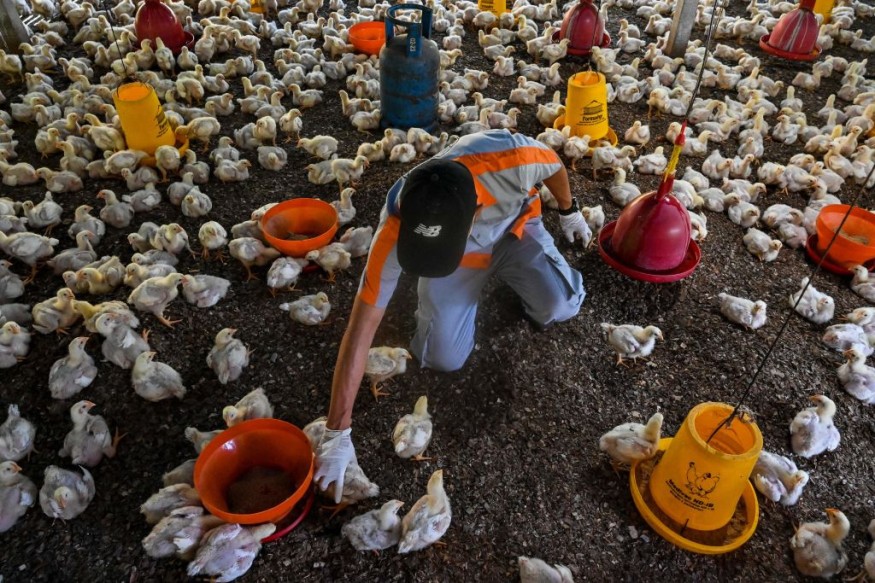
Experts have warned the public of the potential risk of handling chickens without proper awareness and precaution, as they will not only bring bacteria to humans but also stress the birds.
Salmonella And Other Diseases
While the prospect of cuddling up with these fluffy feathered creatures may warm your heart, it is critical to consider the welfare of both the hens and the people who manage them.
The presence of salmonella and other pathogens in chickens causes health issues for humans, underscoring the significance of good cleanliness and precautions when dealing with chickens and other animals, such as ducks.
According to a Center for Disease Control and Prevention (CDC) report, salmonella germs cause an estimated 1.35 million illnesses and 26,500 hospitalizations in the United States each year.
If you must handle a bird, take the necessary sanitary precautions, such as washing your hands with soap and warm water and changing your clothes.
According to Greg Archer, Ph.D., a Texas A&M AgriLife Extension Service poultry specialist and associate professor in the Texas A&M College of Agriculture and Life Sciences Department of Poultry Science, this can help limit the risk of salmonella exposure or transmission into the home after handling.
He noted that poultry, especially chickens, can have mites, lice, ticks, fleas, bed bugs, and other exterior parasites. Poultry flocks and coops should be kept pest-free, but these small biters are still another reason to handle hens with caution and good sanitation.
Scientists also warned regarding the infection of bird flu, also known as avian influenza, which is primarily a disease that affects birds.
Recently, a woman died in China after contracting bird flu with both the H3N2 and H10N5 viruses.
A 63-year-old woman from Anhui province, China, died as a result of a combination infection caused by cross-species transmission.
While some types of avian influenza can infect people, their spread is often limited.
Archer proposed that adults educate youngsters about the hazards and dangers of handling chickens, such as avoiding a potentially harmful peck from a larger bird.
Stress The Bird
Holding and touching chickens may cause stress on the animals, so keep this in mind.
Being slow and gentle with the animals is an excellent first step toward reducing unnecessary stress. Archer also suggests having frequent interactions with the animals so that they become acclimated to you and how you handle them.
Birds are predatory animals that can effectively mask their stress. Archer stated that watching a chicken not eating, drinking, or generating fewer eggs than usual are three main indicators that the animal is under stress. Another sign is that they are vocalizing more and differently than usual.
Archer acknowledged that many backyard poultry breeders treat their flocks like family. Interacting with these animals should be enjoyable, but it also carries the duty of protecting the birds, yourself, and your loved ones.
"I hate to be a buzzkill about the 'snuggle a chicken day. I want people to treat their flocks like productive members of the family, but I also want them to be smart about handling them," he added.
© 2025 NatureWorldNews.com All rights reserved. Do not reproduce without permission.





